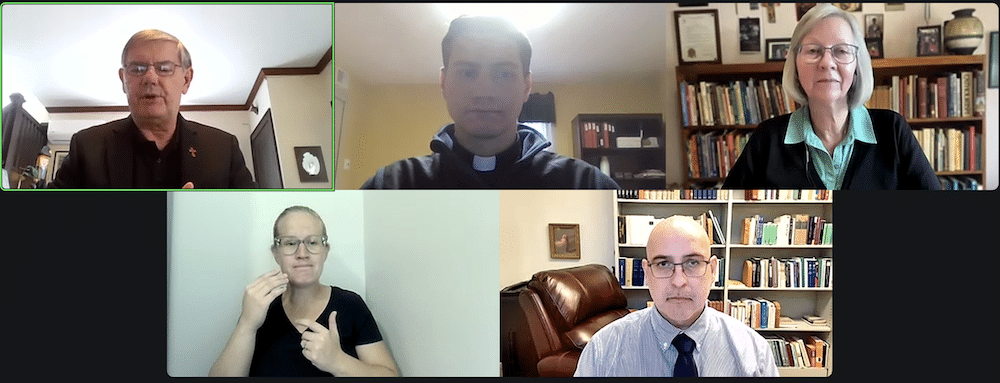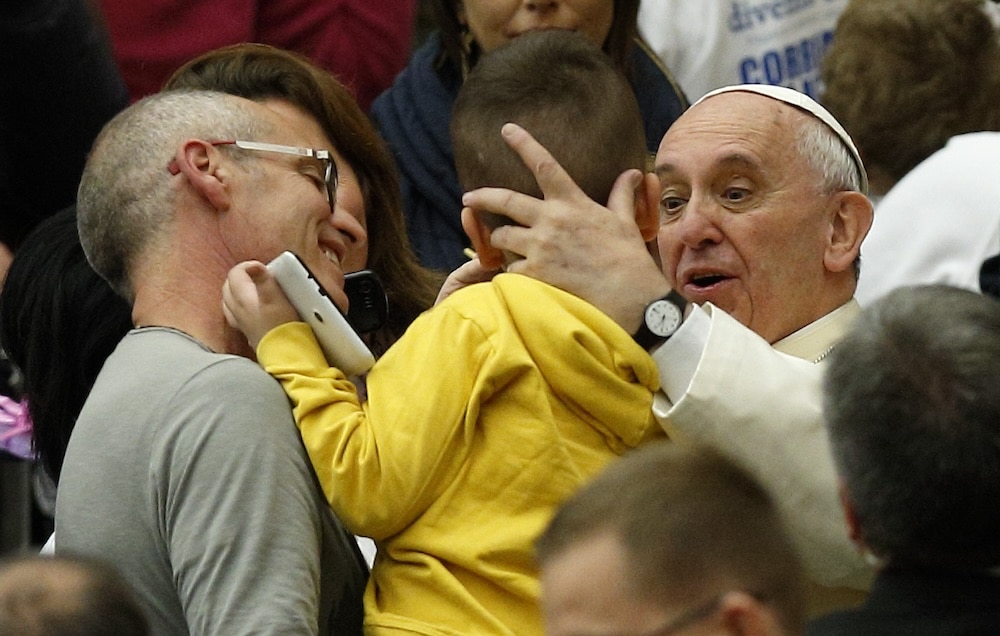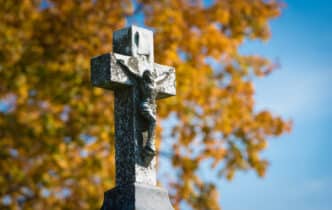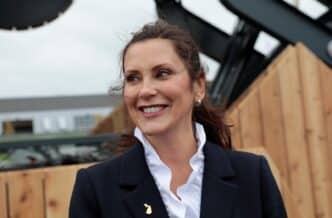Children and adults with autism can contribute to the Church in unique and meaningful ways, according to a recent panel of Catholic experts.
“As St. Thérèse says so beautifully, our primary vocation is to love — to love and be loved,” Father John Ferguson, a priest with the Diocese of Pittsburgh, Pennsylvania, who experiences autism, said during a virtual panel held Oct. 14 by the National Catholic Partnership on Disability (NCPD) and the Institute for Human Ecology (IHE) at The Catholic University of America in Washington, D.C. “Autistic people are no different.”
The panel, “Fostering Vocations: Autism and the Church’s Call to Belonging,” explored how people with autism can live out vocations within the Church and called on the Church to recognize and welcome these individuals and their gifts.
“Everybody has a gift that they can share within the Church,” Deacon Lawrence R. Sutton, the panel’s moderator and a licensed psychologist and deacon in the Diocese of Pittsburgh, said.
“It’s important that we take the time to get to know the individuals that are part of our parish and look for their gifts, allow those gifts to come out, allow those gifts to be shared.”
He was joined by Father Ferguson and two other panelists: Mary Beth Walsh, who serves on the executive advisory board for the Office for Pastoral Ministry with Persons with Disabilities of the Archdiocese of Newark, New Jersey, and Michael Waddell, the Edna and George McMahon Aquinas Chair in Philosophy and founding director of the Master of Autism Studies program at Saint Mary’s College in Notre Dame, Indiana.
They spoke from personal experience. Deacon Sutton, who also serves as director of pre-theology formation at St. Vincent College and Seminary in Latrobe, Pennsylvania, has developed and runs a sacramental preparation and religious education program for youth with autism in his diocese and has written books about the issue. Walsh is the mother of two adult sons, including one diagnosed with profound or severe autism. Waddell and his wife have three daughters, including two on the autism spectrum.
The U.S. government’s National Institute of Mental Health (NIMH) defines autism spectrum disorder (ASD) as “a neurological and developmental disorder that affects how people interact with others, communicate, learn, and behave.” According to estimates by the Centers for Disease Control (CDC), one in 36 U.S. children aged 8 years old had ASD in 2020 and, in 2017, more than five million U.S. adults, or 2.21%, had ASD.

A simple vocation
Father Ferguson began the event, which included an American Sign Language interpreter, in prayer.
“We ask you, Lord, to pour out your Holy Spirit upon this discussion, that we may know the vocations of all those who are autistic, that they have a belonging and place in the Church, that they too are called to be saints,” he prayed.
The panelists agreed that individuals with autism can contribute vocationally to the Church.
“Even people who might not be called to what we might think of as a religious vocation … or a vocation in the traditional sense of employment,” Waddell said, “there’s still things that they contribute to the work of creation, to the created order, and we need to be more expansive and creative in our thinking about what that looks like — for all people, but especially for individuals on the spectrum.”
He gave a personal example. He spoke about his two daughters on the autism spectrum, including his daughter Olivia, who needs a more intensive level of support. He identified her vocation.
“Olivia has an ability to bring a smile to people’s face,” he said. “As simple as it sounds, that can be a vocation, to bring happiness into people’s lives.”
The importance of the Mass
Addressing how people can help foster vocations for individuals with profound or severe autism in the Church, Walsh emphasized taking them to Mass. Referencing her son, Ben, she acknowledged that attending Mass with a child with autism presents challenges.
“But like many, many people on the autism spectrum,” she said, “he was very quick to understand patterns and to recognize repetition.”
Everyday Catholics can help those with autism and their families participate in the liturgy, Waddell said, by working to normalize it.
“I’ve always thought the presence of babies crying or otherwise is the sign of a healthy parish,” he said. “Similarly, I think that the presence of individuals with diverse abilities — and all of the ways that that might manifest in the liturgical space — is also a sign of a healthy parish.”
A personal witness
Father Ferguson, a priest at St. Isidore the Farmer Parish, which includes six churches in Pennsylvania, shared his journey to the priesthood as someone who experiences autism. He struggled with social interactions and learning while growing up. At the same time, he said the experience “instilled in me a beautiful perseverance in hard work” and the knowledge that God “will always be there for you and give you all that you need.”
He was 4 years old, he said, when he first experienced a call or attraction to the priesthood. As a child, he also played or practiced Mass, which helped him engage at Mass and also stirred his vocation.
“Usually boys dream of being firemen or police officers, all those good things,” he said. “I just thought about being a priest.”
He heard the call to become a priest again as he graduated from high school. Despite his previous difficulties in school and doubts about higher education, he surrendered his plans to God, he said. He attended community college and, then, entered seminary.
Along the way, others questioned the possibility of him moving forward. Father Ferguson stressed the importance of having the backing of his bishop and formators.
“That’s really where I found God in the midst of this, he gave me the people I needed to help me,” he said.
He also experienced hatred “toward being autistic,” he said.
“Because I saw how much it caused me pain rather than the strengths that come with it,” he said. He found solace in Scripture, including Bible passages about God choosing the weak to shame the strong (cf. 1 Cor 1:27).
“Jesus, he experienced rejection,” Father Ferguson added. “No one understood who he was, they misunderstood him. People on the spectrum understand and can relate to Christ in that way.”
He was ordained a priest three months ago.
“It overwhelms me with emotion just where God has led me all these years, to embrace him, this part of me that’s autistic,” he said, “and that the Lord said so beautifully one day, ‘My son, I love this brain, and what I have created and loved you are not to hate.'”
He still faces challenges today, and acknowledged the importance of being able to recognize his limits and when to step back, pray and connect with God.
“And ask the Lord to just hold my brain, and just press my head against the tabernacle,” he described. “He places my head against his heart, and just allows his heart to relieve some of the stresses and then … gives me the strength I need to carry out the work that he’s calling me to.”

(CNS photo/Paul Haring)
Inclusion in the Church
The panelists suggested several ways the Church could involve people with autism and benefit from their gifts. Waddell called the inclusion of students on the autism spectrum in Catholic schools “the next frontier.”
Not only do loved ones on the spectrum benefit from community but also community benefits from them, he said at another point. Parents often approach him, he said, to say that their child is in his daughter’s class and has become a kinder person after getting to know her.
The panelists also wanted the Church to address these individuals’ transition to adulthood. One of those areas included providing meaningful work, if not employment, for individuals with autism. That could look like everything from inviting someone to do a Mass reading to considering people of differing abilities when hiring, Waddell said.
The panelists also discussed offering opportunities to adults on the spectrum who feel like they have a vocation to religious life. Religious communities with aging members, for example, could consider admitting individuals on the spectrum, panelists suggested. New communities might also include them.
The role of everyday Catholics
Everyday Catholics can help those with autism and their families feel welcome at church with something as simple as a smile or wave, Walsh and Waddell said.
For Waddell, being in a parish where his family felt like Olivia was welcome made the difference between them continuing to be active in the Church or not, he said. Saying that causes him great pain, he added, because his faith is so important to him.
“The simple difference of being welcome, the occasional kind word to my wife when another mom sees that she’s struggling to help Olivia get through Mass … the child who at the sign of peace made sure that she tries to shake Olivia’s hand,” he listed. “The smallest human gestures can be so profoundly powerful.”








